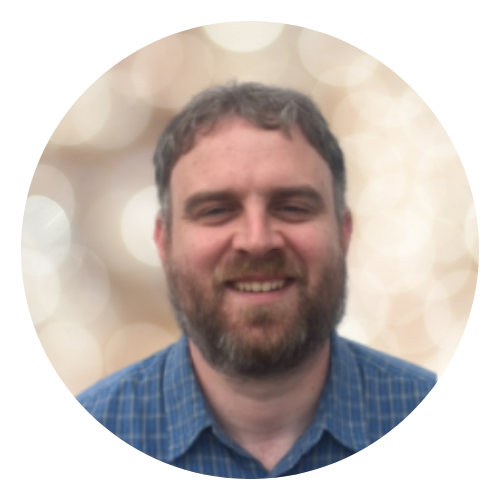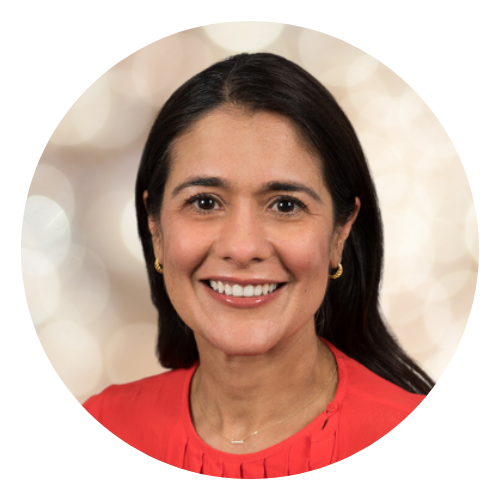Our Scientific Advisory Board
The Scientific Advisory Board (SAB) provides strategic guidance and direction on the quality and scope of our research investments and programs into understanding the WSS gene (KMT2A) and identifying the best treatment options for those diagnosed with WSS. The SAB plays a key role in guiding and prioritizing request for proposals, proposals, grants and other awards by the WSS Foundation. The SAB was launched on Rare Disease Day 2019 and features leaders in the genetic research, nanoscale analysis and technology, drug discovery and treatment, and clinical practice who are committed to furthering the mission of the WSS Foundation.

Dr. Andrew Croxford
Genetics, Immunology, Immunogenetics - Switzerland
Dr. Croxford is currently Director of Inflammation and Autoimmunity at ImmunOs Therapeutics, a biotechnology company developing novel biologics in the immuno-oncology and autoimmunity therapeutic areas. Previously, he worked as a laboratory head in the drug discovery department of Idorsia Pharmaceuticals Ltd, based in in Allschwil, Switzerland. The company specializes in identifying novel molecular targets linked with rare disorders, and the subsequent generation of small molecule therapeutics for their treatment.
He studied genetics, immunology and immunogenetics at the University of Manchester before completing an exchange program at the world-renowned institute of genetics in Cologne, Germany. He completed his PhD (summa cum laude) at the Johannes Gutenberg University of Mainz, Germany, where he developed multiple mouse model systems (from engineered stem cells) to better understand complex inflammatory responses. Subsequently, Dr. Croxford received an EMBO fellowship and worked as a postdoctoral researcher at the University of Zürich, Department of Experimental Immunology.
To date, Dr. Croxford has authored or co-authored over thirty publications and review articles in peer-reviewed journals, with his works collectively receiving over 3,000 citations to date.

Dr. Eoghan Dillon
Photothermal Spectroscopy Corp (PSC) - USA
Growing up in Dublin, Ireland, Dr. Dillon received his undergraduate degree in physics and physics technology at Dublin Institute of Technology, Kevin Street in 2005. He was awarded a place on the FAS Science Challenge program which placed him on a six month internship at Rice University in Houston, Texas. Staying at Rice University after the internship, he earned his PhD in Chemistry in 2012, with research focused on the efficient capture of CO2 using polyethyleneimine functionalized nanocarbons.
During this time, he published multiple scientific papers in peer reviewed journals. He has spoken at most of the major scientific conferences in the U.S. including ACS, MRS, AVS, ISPAC and BPS. After graduate school, Dr. Dillon began his career as an applications scientist at Anasys Instruments, a nanoscale analysis company based in Santa Barbara, California. There he specialized in AFM based techniques such as nanoscale infra-red spectroscopy and nanoscale thermal analysis.
Currently, Dr. Dillon is the worldwide manager for applications and business development for Photothermal Spectroscopy Corp. PSC is a company that specializes in sub-micron infrared spectroscopy using visible detection for the analysis of a variety of applications, including, life science, polymers and contamination identification.

Dr. Jill Fahrner
Johns Hopkins University School of Medicine - USA
Dr. Jill Fahrner is an Assistant Professor and Director of the multidisciplinary Epigenetics and Chromatin Clinic in the Department of Genetic Medicine at the Johns Hopkins University School of Medicine. She is a physician-scientist with a long-standing interest in epigenetic mechanisms of disease and has published many scientific articles on this topic.
She earned her PhD in Cellular and Molecular Medicine at Johns Hopkins and her MD at the University of North Carolina. She completed Pediatrics residency training at Duke University Medical Center and Clinical Genetics residency training at Johns Hopkins in the McKusick-Nathans Institute of Genetic Medicine, where she served as Chief Resident and then joined the faculty. She is a long-standing member of the American Society of Human Genetics, having won an ASHG Reviewer’s Choice Abstract Award. She has received a Johns Hopkins School of Medicine Clinician Scientist Award, a Musculoskeletal Pilot and Feasibility Award, a William and Ella Owens Medical Research Foundation Award, and the Margaret Ellen Nielsen Fellowship Award. Her research funding includes a prestigious Hartwell Foundation Individual Biomedical Research Award and a National Institutes of Health K08 Career Development Award.
Her clinical focus is on caring for individuals with epigenetic and chromatin disorders, and she has seen hundreds of individuals with these conditions. The goal of her ongoing laboratory research is to understand disease mechanisms of and develop therapies for Mendelian disorders of the epigenetic machinery. She recently described a new disorder within this group that defines a new biochemical category of disease.

Chris Shilling
Forge Biologics - USA
Mr. Shilling is the Vice President of Regulatory Affairs and Quality at Forge Biologics. He has over 15 years of experience in development of novel gene therapies for rare and severe disorders. Christopher is an experienced leader in gene therapy regulatory affairs, pharmacology, toxicology, and project management focused on developing strategies for early phase clinical trials in support of a variety of transformative therapeutics for pediatric and rare diseases.
Prior to joining Forge, Mr. Shilling started the Drug and Device Development service at Nationwide Children’s Hospital, in Columbus, OH in early 2012. As director, he worked closely with Nationwide Children’s and The Ohio State University faculty and staff to understand US FDA and foreign agency regulations of drugs and medical devices. He worked with key stakeholders to develop regulatory strategies in developing novel therapeutics. He advised on critical steps and milestones towards early phase clinical trials in support of a variety of transformative therapeutics for pediatric and rare diseases.
He has direct experience in gaining US FDA acceptance for almost twenty first-in-human clinical trials, dozen orphan drug designations, and two fast track designations. He has contributed to over fifteen successful licenses with industry partners for technologies discovered at Nationwide Children’s Hospital and The Ohio State University. Over his career, he has provided regulatory guidance for novel biologic therapies with Abeona Therapeutics, Amicus Therapeutics, AveXis now a Novartis Company, Milo Biotechnology, Myonexus Therapeutics, Sarepta Therapeutics, along with a variety of other companies ranging from angel invested startups to publically traded, and commercial staged biopharmaceuticals.
Prior to starting the Drug and Device Development program, Chris was the Program Manager for the Center for Gene Therapy at Nationwide Children’s where he assisted the development and initiation of several of the first human gene transfer clinical trials in pediatrics for neuromuscular disorders. He received a Bachelor of Science degree in biology and a Masters of Science degree in Pathology from the Ohio State University.

Dr. Krishnendu Khan
West Pharmaceutical Services - USA
Dr. Krishnendu Khan is currently a Senior Scientist for Advanced Therapies at West Pharmaceutical Services. Previously, he was staff at the department of Cardiovascular and Metabolic Sciences at Cleveland Clinic Lerner Research Institute.
Dr. Khan has received his Ph.D. in Biochemistry from Indian Institute of Science, Bangalore, India where he studied DNA-protein interaction using budding yeast as the model system. Following his Ph.D., he did his post-doctoral research on transcriptional regulation in early zebrafish development at Max Planck Institute of Cell Biology and Genetics, Dresden, Germany.
In 2015 he arrived in Cleveland, USA and started studying tRNA synthetases, a class of enzymes that is critical for protein synthesis within cells. He is interested in understanding the non-canonical functions of these proteins and currently probing their involvement in a severe neurological disorder known as Hypomyelinating Leukodystrophy or HLD where the patients have defects in the formation of myelin sheath in the central nervous system.
Dr. Khan has published his finding in multiple journals of repute and serves in reviewing as well as in editorial boards of several international journals of repute.

Dr. Maya Chopra
Boston Children's Hospital & Harvard Medical School - USA
Dr. Chopra (MBBS FRACP) is a physician-researcher who graduated from medical school in 2000 from the University of NSW and subsequently obtained her Australian Board qualifications in Pediatrics and Clinical Genetics. She has extensive experience in the assessment and diagnosis of children with rare genetic disorders. Dr. Chopra has held previous positions in Sydney (Royal Prince Alfred Hospital), Shanghai (Shanghai First Maternity and Infant Hospital) and Paris (Imagine Institute of Genetic Diseases), where she developed expertise in the applications of gene sequencing technologies for rare presentations including intellectual disability and craniofacial differences.
Dr. Chopra’s research is focused on the delineation of in rare monogenic syndromes, particularly those affecting learning and development. Current research efforts at Boston Children’s Hospital include the Chopra-Amiel-Gordon syndrome Natural History study and the Congenital Heart Disease – Autism Spectrum Disorder Sequencing initiative, for which is Principal Investigator. She is also BCH’s P.I for the National Brain Gene Registry and serves as Chair of the ClinGen Intellectual Disability / Autism Gene Curation Expert Panel for this project. Dr. Chopra leverages her expertise in understanding the underpinning genetic mechanisms and clinical trajectories of rare neurodevelopmental disorders to evaluate suitability for therapeutic intervention in partnership with the RSZ TNC, scientific collaborators, and the patient and family community.
